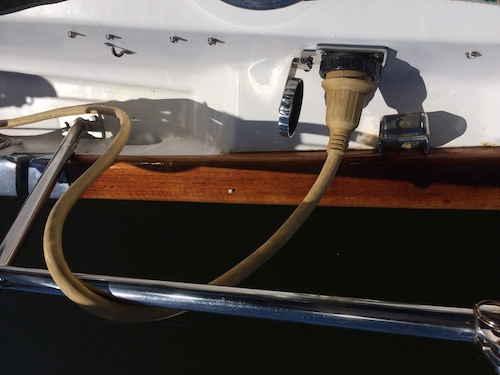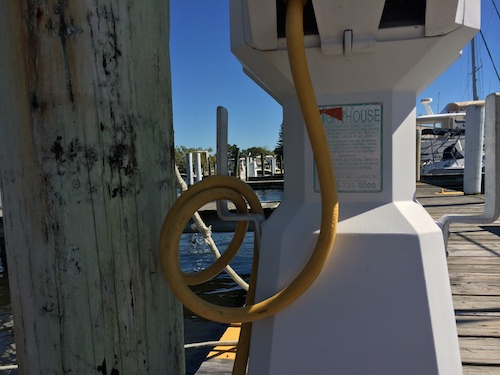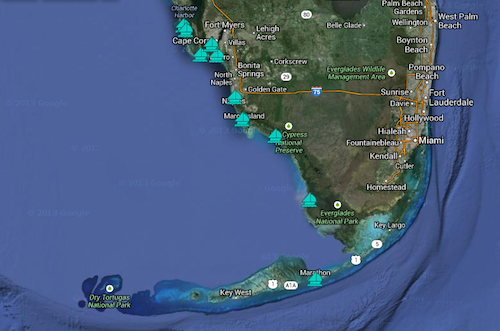
Thanks to reader, Mark Lawrence for pointing out this important safety tip. We too have seen melted shorepower cords. Be SURE they are securely connected – the threads securely screwed onto the boat and the dock end plug securely twisted in place. But even that doesn’t insure the motion of the boat and the rise and fall of the tides doesn’t pull on the cord. Here’s Mark’s comment:

“We frequently see folks bringing melted shore cord plugs into West Marine for replacement. The reason is almost always because they did not securely screw the power cord ring to the receptacle threads and the motion of the boat pulls the cord part way out. That gap can start an arcing that may melt the cord or start a fire. I used to be lazy about this but not anymore after seeing numerous melted cords. On pier side end, be sure to wrap the cord around the tower and check frequently to make sure it is not being pulled out.” Mark Lawrence
David always wraps our shorepower cord around the boat stanchions or lifelines, both at the bow where the cord comes aboard and at the stern by where it connects. He also insists on wrapping the cord around the dock electrical box before plugging it in. And it’s also looped around a dock cleat before it droops between the dock and the boat allowing for tide swings.


Be safe out there — and avoid fire hazards at the dock! Anyone with more input on this subject, remind us of important safety tips by leaving a comment & sharing. Thanks! Jan












Hi Jan,
I use a short piece of line tied to the shore power cord and power post on the dock and another piece of line between the cord and the stern rail close to the shore power connector on the boat. This takes the strain off of the connectors without having to wrap the cord around a cleat or other object. Wrapping the shore power cord too tightly can cause internal failure of the cord.
Great idea! Thanks Tom!
You might want to look into the Smartplug system as a replacement. I did this last year and have been very satisfied. I replaced because I noted some discoloration on the old plug. I was surprised to find that most of the damage was inside the socket and was not readily apparent….it was only a matter of time before it failed.
Pat
S/V Kailani